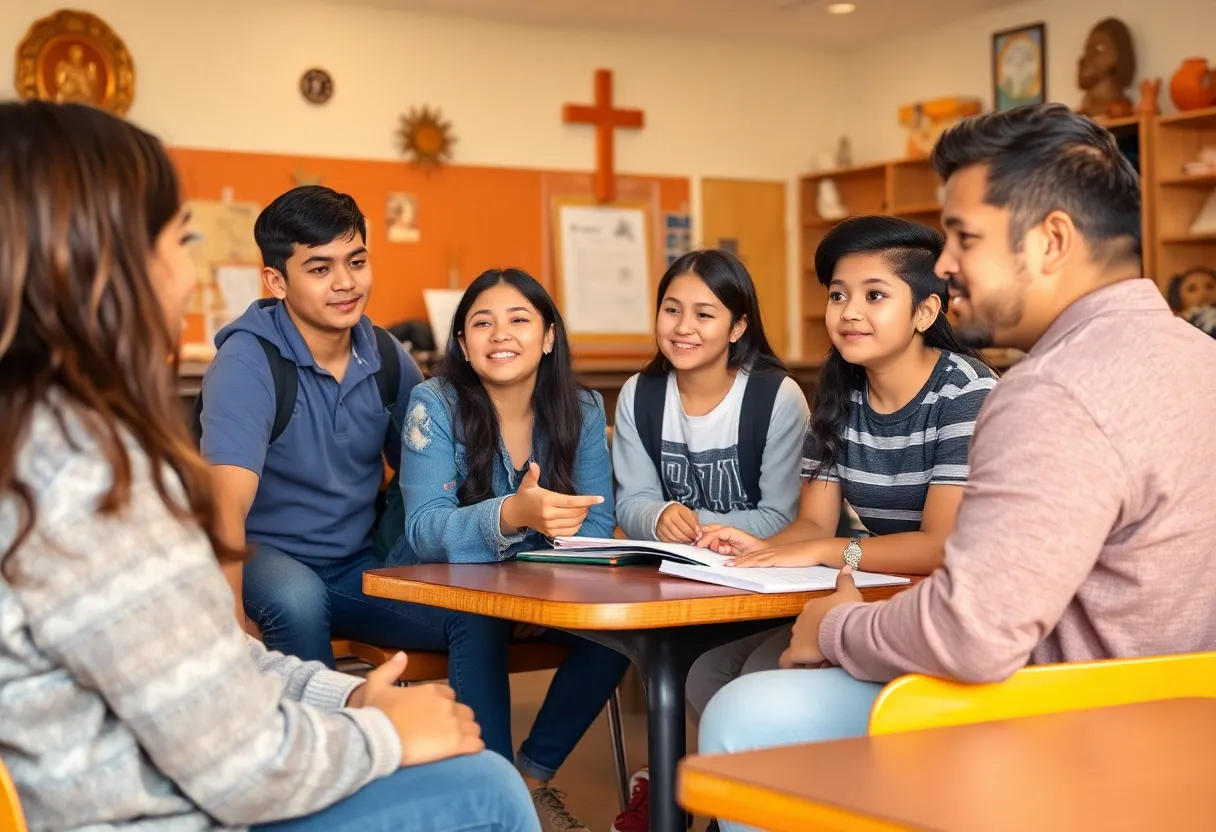News Summary
Arizona lawmakers have introduced legislation allowing religious chaplains to provide counseling in public schools. Known as SB 1269, the bill permits voluntary participation from school districts and highlights eligibility requirements for chaplains. The proposal has sparked debate about the intersection of spirituality and education, with supporters advocating for mental health support while critics raise concerns about potential violations of the First Amendment.
Arizona’s Controversial Move: Religious Chaplains in Public Schools
In the sunny city of Phoenix, Arizona, a significant wave of change is coming to public schools, and it’s raising quite a stir. State lawmakers have recently introduced legislation that would allow religious chaplains to provide counseling to students. This bold proposal, known as SB 1269, has captured the attention of many, as it marks a transformative moment in how spiritual guidance could blend into the public education landscape.
A Law That Gives Schools the Choice
On March 20, 2025, the bill found its way through preliminary House approval, making its first strides towards becoming a law. One of the key aspects of this legislation is that participation for school districts is entirely voluntary. This means that each district will have the power to decide if they want to bring chaplains into their schools, emphasizing a local choice in the process. Furthermore, parental permission will be a crucial step for students wanting to engage with these chaplains, ensuring that families have a say in their children’s spiritual counseling.
Who’s Eligible to Be a Chaplain?
But what does it take to be a chaplain under this new law? The bill outlines that eligible chaplains must belong to a local religious group that meets regularly—at least once a month—right in the district. This requirement may create barriers for some faith communities, particularly those that don’t have a local place of worship where they gather. Additionally, the legislation specifies that the chaplains must come from established faith groups that recognize one or more supernatural entities. This means that those seeking help from non-religious counselors or atheistic support may find themselves out of luck, as their options could be limited.
The Debate: Supporters vs. Critics
As with any substantial change, the proposal has drawn its share of supporters and detractors. Advocates believe that this integration of chaplains could be pivotal in addressing the mental health crisis affecting students today. They argue that incorporating spirituality into the counseling mix could offer a unique approach that traditional psychology may not provide. However, critics are voicing their concerns louder than ever. Some have raised alarms about potential violations of the First Amendment, specifically regarding the establishment of religion in public schools. This clash of perspectives further complicates the already heated discussions around this subject.
Democratic legislators have labeled the initiative as a form of indoctrination and expressed worries over the lack of professional training required for chaplains, which starkly contrasts with the rigorous qualifications needed for licensed school counselors. It’s a conversation that echoes similar turbulence seen in places like Texas and Florida, where religious involvement in education is increasingly being challenged.
What’s Next for the Legislation?
The journey of SB 1269 is still unfolding, as it passed through the House Education Committee along party lines. Republicans stand firm, advocating for the inclusion of spiritual support while Democrats continue to oppose the bill on the grounds of potential overreach and separation of church and state principles. Legal challenges loom large on the horizon if the bill passes through a roll-call vote and successful reviews in the Senate, which had previously entertained a different version of the proposal.
Both educators and parents are voicing that schools should prioritize academic goals over religious teachings. On the other hand, some proponents claim that spiritual counseling could possibly yield better outcomes than conventional methods. The ongoing debate raises questions about the future of public education in Arizona and how much (or how little) spirituality should be integrated into schools.
As this legislation wends its way through the political machine, it is clear that whether it becomes law or faces legal hurdles, the discussion around mental health support, spirituality, and education is only just beginning, making this a thrilling topic to watch in the coming months.
Deeper Dive: News & Info About This Topic
HERE Resources
Additional Resources
- Arizona Capitol Times
- Tucson.com
- AZ Mirror
- AZCentral
- Encyclopedia Britannica: Religious Chaplains in Public Schools
Author: STAFF HERE PHOENIX WRITER
The PHOENIX STAFF WRITER represents the experienced team at HEREPhoenix.com, your go-to source for actionable local news and information in Phoenix, Maricopa County, and beyond. Specializing in "news you can use," we cover essential topics like product reviews for personal and business needs, local business directories, politics, real estate trends, neighborhood insights, and state news affecting the area—with deep expertise drawn from years of dedicated reporting and strong community input, including local press releases and business updates. We deliver top reporting on high-value events such as the Waste Management Phoenix Open, Cactus League Spring Training, and Arizona State Fair. Our coverage extends to key organizations like the Greater Phoenix Chamber of Commerce and Visit Phoenix, plus leading businesses in technology and healthcare that power the local economy such as Intel and Banner Health. As part of the broader HERE network, including HERETucson.com, we provide comprehensive, credible insights into Arizona's dynamic landscape.





